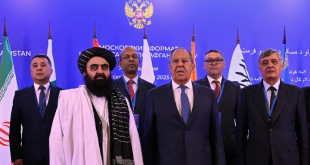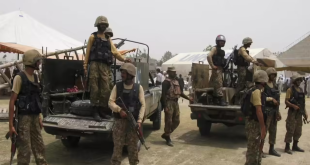KABUL — The United Nations World Food Programme (WFP) has issued an urgent appeal for $539 million to keep its humanitarian lifeline in Afghanistan afloat, warning that the country’s hunger crisis is intensifying by the day — with women, children, and returning refugees facing the greatest risk as winter approaches.
In a statement posted on X (formerly Twitter), the agency said, “Afghanistan’s hunger crisis is growing deeper by the day. Women, children, and returnees are among the hardest hit. WFP urgently needs $539 million to continue reaching those who need us most over the next six months.”
According to the latest UN estimates, over 15 million people across Afghanistan are now experiencing acute food insecurity, with nearly one in five households in urgent need of assistance. The crisis is being fueled by severe drought, economic collapse, mass displacement, and a wave of returnees from neighboring countries — all of which have combined to push already fragile communities to the brink.
Western donor fatigue has only deepened the crisis. The UN’s 2025 humanitarian response plan for Afghanistan is just 13.3% funded, leaving aid groups scrambling to prevent the unraveling of critical relief operations. WFP warns that without additional funding, it will be forced to cut essential food programs, particularly in remote and underserved regions, just as the harsh winter sets in.
The scale of need comes as political shifts and international disengagement have slashed aid flows. In recent years, Western governments and donors have reoriented their priorities away from Afghanistan — a country now isolated both diplomatically and financially following the Taliban’s return to power in 2021.
Meanwhile, local aid groups like the Afghan Red Crescent Society (ARCS) have stepped in to help fill the gap, providing humanitarian assistance to more than 511,000 people over the past year. Their efforts — including food packages, healthcare, and emergency relief — have served as a lifeline, but humanitarian leaders warn they are running out of time and resources.
“WFP is sounding the alarm for a reason,” one aid official said. “We are weeks away from making devastating choices — about who eats and who doesn’t.”
The warning arrives as the global community reflects on the long-term fallout of the West’s 20-year presence in Afghanistan and the humanitarian consequences of its abrupt exit. Aid leaders say renewed Western support is urgently needed, not only to prevent famine, but to uphold basic human dignity for millions of Afghans now left behind.
Ask ChatGPT
 Afghanistan Times Latest News and Analysis from Afghanistan and the Region
Afghanistan Times Latest News and Analysis from Afghanistan and the Region



